
Kokoda Track: A Journey Through History and Nature
The Kokoda Track in Papua New Guinea is a world-renowned trekking route that combines breathtaking natural beauty with rich historical significance. Stretching approximately 96 kilometers through rugged terrain, dense rainforests, and steep mountain ranges, the track offers a challenging yet rewarding experience for adventure seekers and history enthusiasts alike. The Kokoda Track is famous for its role in World War II, where it became the site of intense battles between Japanese and Allied forces. Walking the track today, visitors can encounter numerous war relics, memorials, and artifacts that tell the story of the brave soldiers who fought here. The track is not just a walk through history; it is also a spiritual journey that pays homage to the courage and resilience of those who defended Papua New Guinea. Beyond its historical significance, the Kokoda Track offers an opportunity to immerse oneself in Papua New Guinea's stunning natural environment. The track traverses through diverse ecosystems, from lush rainforests teeming with exotic wildlife to high-altitude plains offering panoramic views of the surrounding landscapes. Trekkers will also have the chance to interact with the local communities along the way, experiencing the rich culture and warm hospitality of the Papua New Guinean people.
Local tips in Kokoda Track
- Best time to visit is during the dry season from May to October.
- Train well in advance to prepare for the physical demands of the trek.
- Hire a local guide to gain deeper insights into the history and culture.
- Pack light but include essentials like water purification tablets and insect repellent.
- Respect local customs and ask for permission before taking photographs of local people.
Kokoda Track: A Journey Through History and Nature
The Kokoda Track in Papua New Guinea is a world-renowned trekking route that combines breathtaking natural beauty with rich historical significance. Stretching approximately 96 kilometers through rugged terrain, dense rainforests, and steep mountain ranges, the track offers a challenging yet rewarding experience for adventure seekers and history enthusiasts alike. The Kokoda Track is famous for its role in World War II, where it became the site of intense battles between Japanese and Allied forces. Walking the track today, visitors can encounter numerous war relics, memorials, and artifacts that tell the story of the brave soldiers who fought here. The track is not just a walk through history; it is also a spiritual journey that pays homage to the courage and resilience of those who defended Papua New Guinea. Beyond its historical significance, the Kokoda Track offers an opportunity to immerse oneself in Papua New Guinea's stunning natural environment. The track traverses through diverse ecosystems, from lush rainforests teeming with exotic wildlife to high-altitude plains offering panoramic views of the surrounding landscapes. Trekkers will also have the chance to interact with the local communities along the way, experiencing the rich culture and warm hospitality of the Papua New Guinean people.
When is the best time to go to Kokoda Track?
Iconic landmarks you can’t miss
Kokoda Arch
Explore the Kokoda Arch, a significant historical landmark that honors the courageous soldiers of World War II amidst the stunning landscapes of Papua New Guinea.
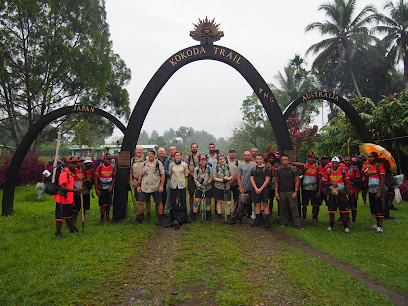
Kovelo
Explore the rich historical heritage of Kovelo, a captivating site in Papua New Guinea's Northern Province that tells the stories of its vibrant past.
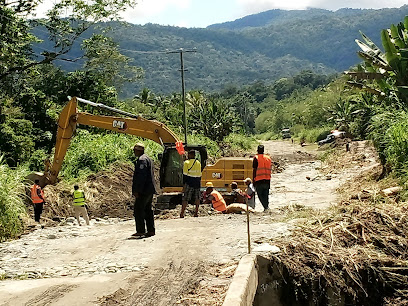
Alola
Explore Alola, a historic jewel on the Kokoda Track, where nature meets the poignant stories of World War II and adventure awaits every traveler.
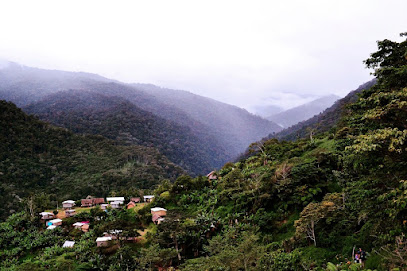
Naduri
Discover the Kokoda Track, an iconic historical site in Papua New Guinea that blends challenging treks with rich World War II history and stunning natural beauty.
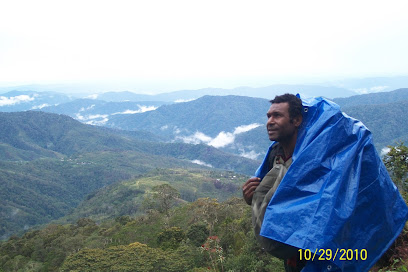
Hoi
Explore Hoi on the Kokoda Track, a historic site rich in World War II history, adventure, and breathtaking landscapes in Papua New Guinea's Northern Province.
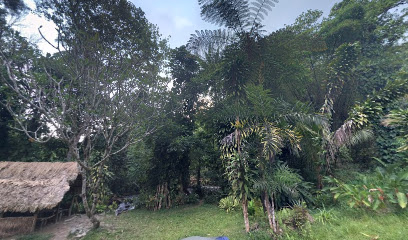
Unmissable attractions to see
Port Moresby Nature Park
Explore the stunning Port Moresby Nature Park, a vibrant fusion of botanical gardens and wildlife experiences in the heart of Papua New Guinea.
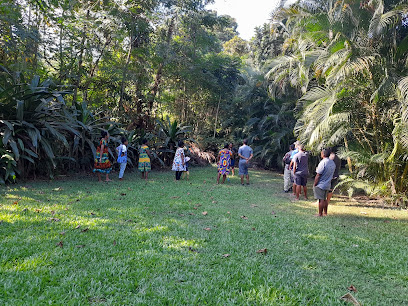
Papua New Guinea National Museum and Art Gallery
Explore the cultural treasures of Papua New Guinea at its National Museum and Art Gallery, showcasing rich heritage and diverse traditions.
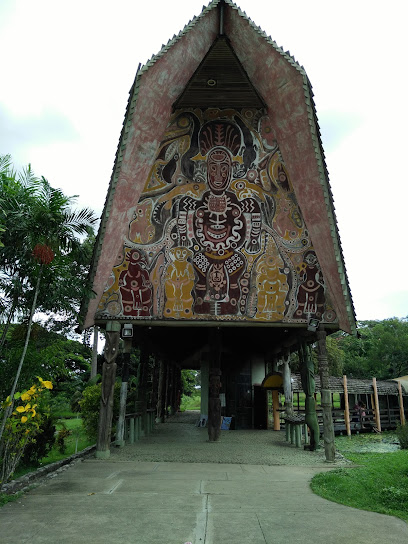
Adventure Park PNG
Discover the joy of Adventure Park PNG, a thrilling theme park in Central Province with rides, relaxation, and beautiful landscapes for everyone.
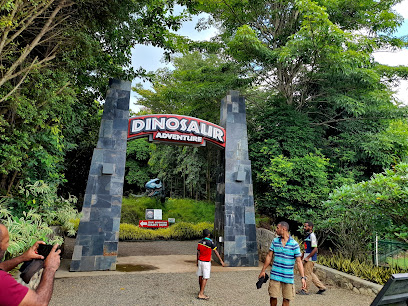
Kouderika Beach
Explore the enchanting Kouderika Beach in Papua New Guinea - a serene paradise with stunning views, vibrant marine life, and rich local culture.
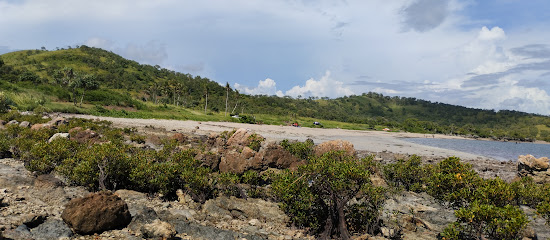
Varirata Park Lookout
Discover stunning panoramas of lush landscapes and vibrant wildlife at Varirata Park Lookout in Central Province, Papua New Guinea.
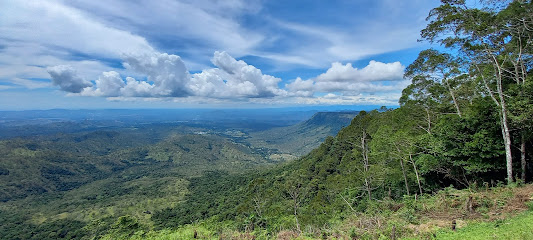
Iarokrai Rapids Picnic Area
Experience the tranquility of nature at Iarokrai Rapids Picnic Area in Central Province, Papua New Guinea—a perfect escape for outdoor enthusiasts and families alike.
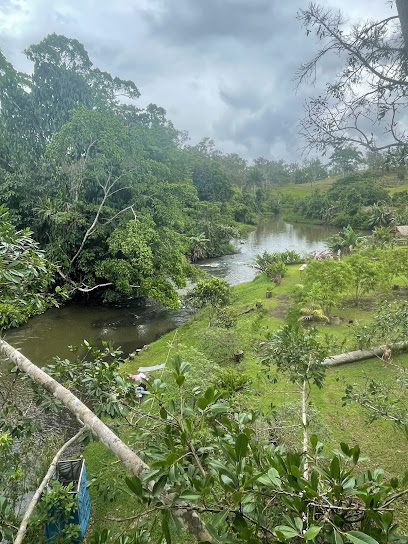
Varirata National Park
Discover Varirata National Park: A breathtaking natural haven in Papua New Guinea, perfect for hiking, birdwatching, and exploring diverse ecosystems.
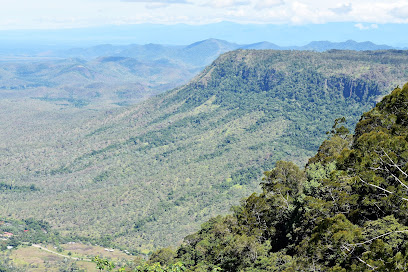
Fisherman island
Explore Fisherman Island's stunning beaches, vibrant marine life, and serene landscapes near Port Moresby, a hidden gem in Papua New Guinea.
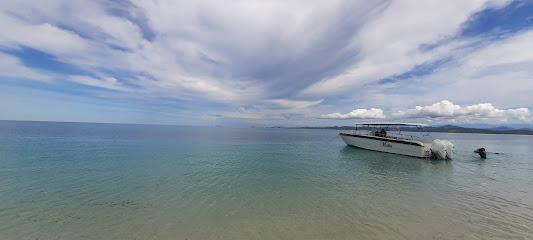
Mirikone Picnic Beach
Experience the natural beauty and tranquility of Mirikone Picnic Beach, a hidden paradise in Central Province, Papua New Guinea.
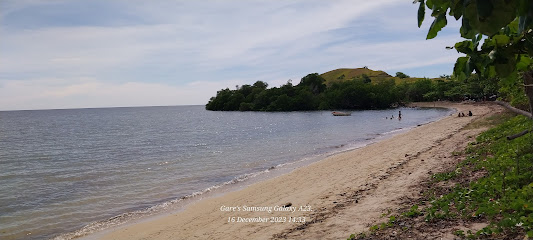
Nupere camp
Explore Nupere Camp in Port Moresby - a serene tourist attraction blending nature and culture in the heart of Papua New Guinea.

Koiari waterfall
Experience the breathtaking beauty of Koiari Waterfall in Papua New Guinea's Central Province, a hidden gem for nature lovers and adventure seekers.
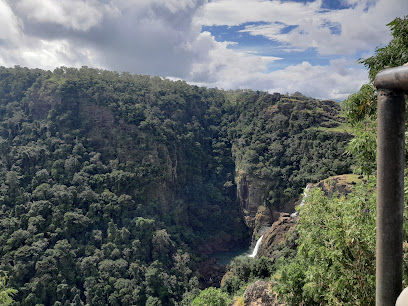
Alola
Explore Alola, a historical gem along the Kokoda Track, where nature meets the remarkable stories of wartime history in Papua New Guinea.
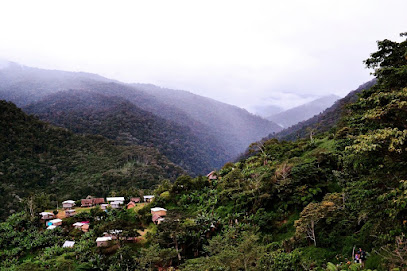
Eora Creek
Discover the breathtaking beauty and historical significance of Eora Creek along the iconic Kokoda Track in Central Province, Papua New Guinea.
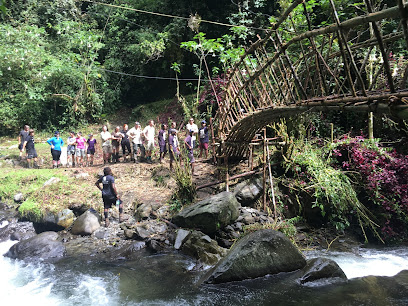
Utama Beach
Experience the pristine beauty and cultural richness of Utama Beach in Port Moresby, where relaxation meets adventure on the stunning shores of Papua New Guinea.

Rouna Ecotourism Development Limited
Discover the breathtaking beauty and rich culture of Papua New Guinea at Rouna Ecotourism Development Limited in Sogeri.
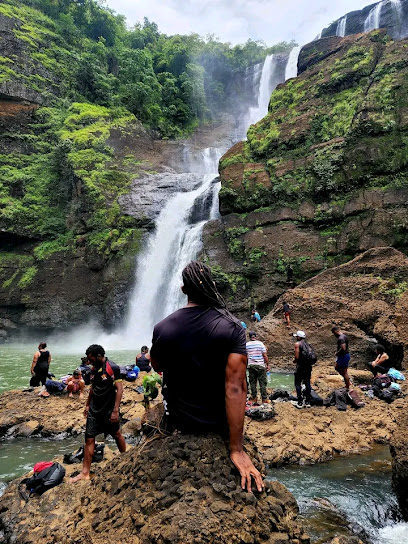
Essential places to dine
Dynasty Seafood Restaurant
Discover fresh seafood delights at Dynasty Seafood Restaurant in Port Moresby’s Vision City Mega Mall – where local flavors meet vibrant dining.
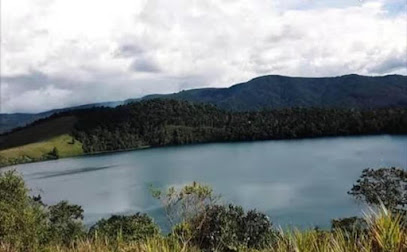
Daikoku Japanese Steak House
Experience authentic Japanese cuisine at Daikoku Japanese Steak House in Port Moresby – where tradition meets taste in every dish.
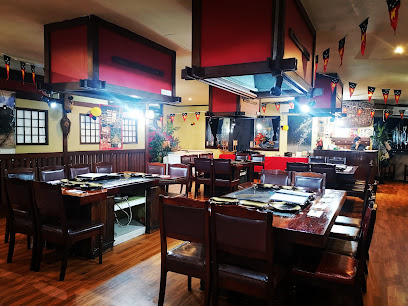
Edge Cafe Port Moresby
Experience delicious brunches at Edge Cafe Port Moresby - where local flavors meet international cuisine in a warm atmosphere.
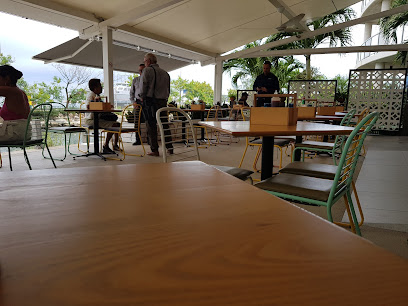
Alibi Bar & Grill
Discover culinary delights at Alibi Bar & Grill in Port Moresby – where local flavors meet international cuisine in a stunning waterfront setting.
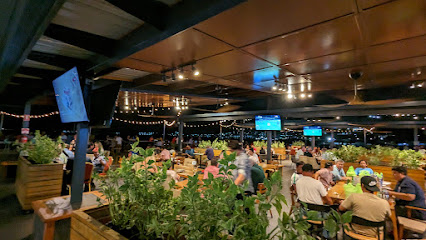
Asia Aromas Harbour Side West PNG
Discover authentic Chinese cuisine at Asia Aromas Harbour Side in Lae - where every dish tells a story.
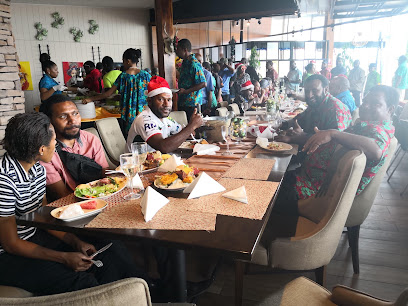
Heritage Cafe PNG
Discover authentic flavors at Heritage Cafe PNG in Port Moresby – where local ingredients meet global cuisine in a vibrant setting.
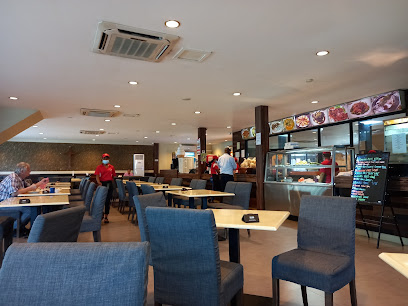
Baker Boy (PNG)
Experience mouthwatering fried chicken at Baker Boy in Port Moresby - where local flavors meet fast food convenience.
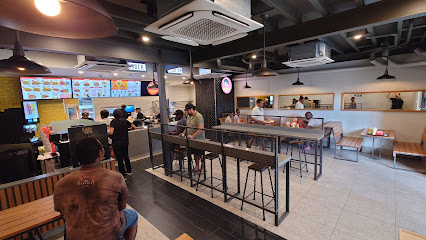
Luluai
Discover the vibrant flavors of Papua New Guinea at Luluai in Port Moresby - where local ingredients meet international cuisine.
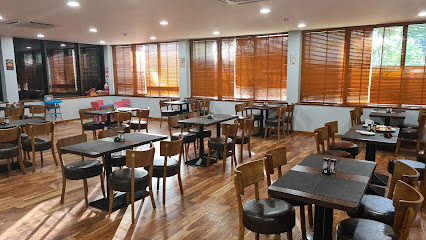
Sizzler's Family Restaurant
Discover delightful dining at Sizzler's Family Restaurant in Port Moresby - where families come together over great food.
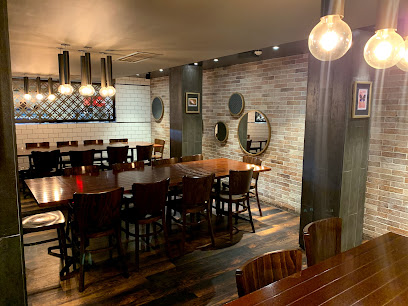
Plaza Food Station
Experience the vibrant flavors of Papua New Guinea at Plaza Food Station - your gateway to delightful culinary adventures.
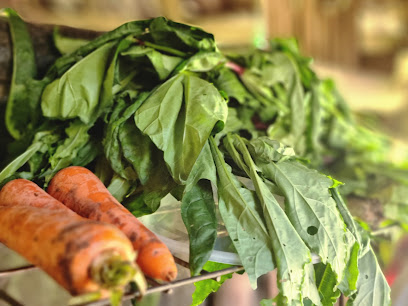
THE DIRTY KITCHEN
Experience the best burgers in Papua New Guinea at The Dirty Kitchen, where local flavors meet global culinary trends.
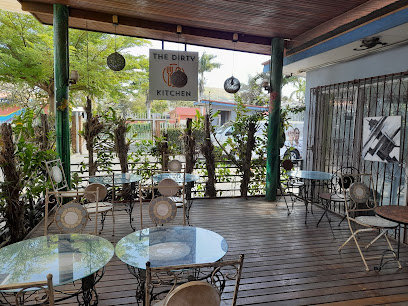
Port Terrace Restaurant & Bar
Experience exquisite local and international cuisine at Port Terrace Restaurant & Bar in Port Moresby with stunning views and exceptional service.
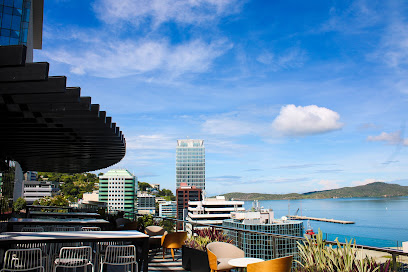
Seoul House Restaurant
Discover the best of Korean cuisine at Seoul House Restaurant in Port Moresby – a true culinary delight awaits you!
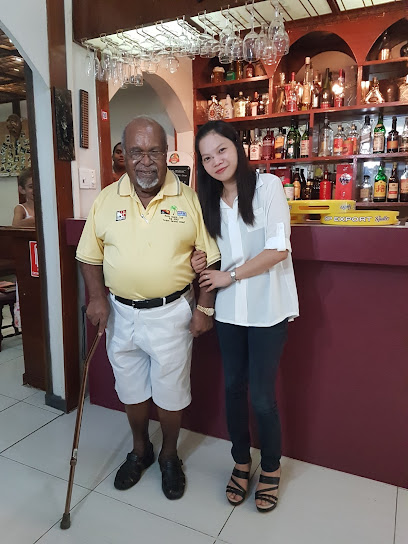
Mumu Restaurant
Discover authentic Papua New Guinean cuisine at Mumu Restaurant in Port Moresby - where local flavors come alive.
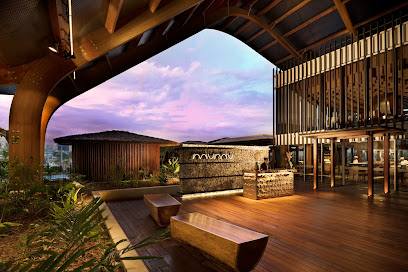
Pentagon Entertainment western and asian cuisine
Discover Pentagon Entertainment: A delightful fusion of Western and Asian cuisine in Port Moresby’s vibrant dining scene.
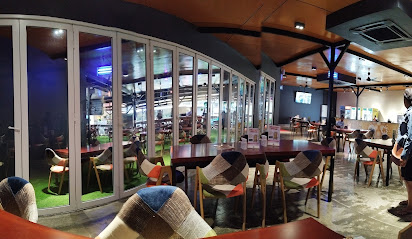
Markets, malls and hidden boutiques
Stop and Shop Waigani Central
Experience the essence of Port Moresby at Stop and Shop Waigani Central, your go-to destination for groceries and local treats.
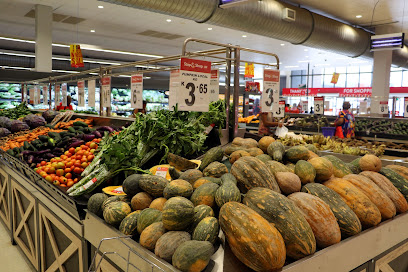
Jack's of PNG
Experience the vibrant culture of Papua New Guinea through unique clothing and accessories at Jack's of PNG in Port Moresby.
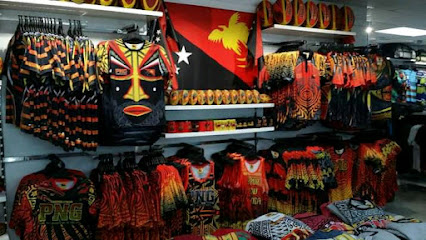
Cool Stuf Ltd / Smart Shopper Ltd
Explore Cool Stuf Ltd in Port Moresby for the latest electronics, unique accessories, and a vibrant shopping experience in Papua New Guinea.
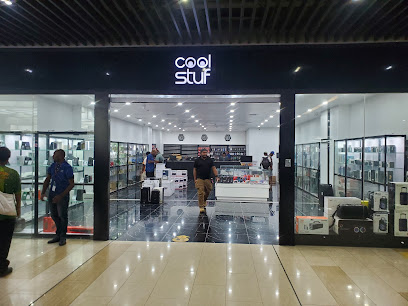
Mayapu clothing
Explore Port Moresby's hidden gem for second-hand fashion at Mayapu Clothing - a unique shopping experience on your travel journey.
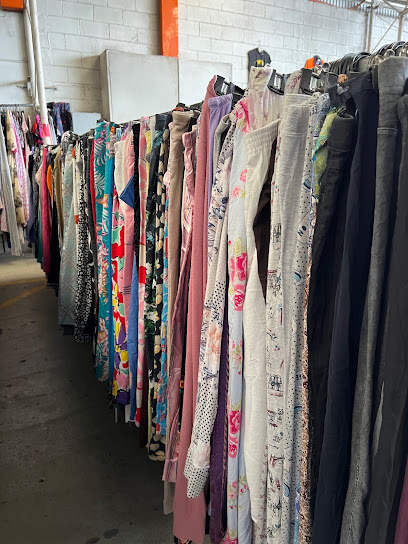
Stop and Shop Express
Discover local flavors and essentials at Stop and Shop Express, the best grocery store in Port Moresby, Papua New Guinea.
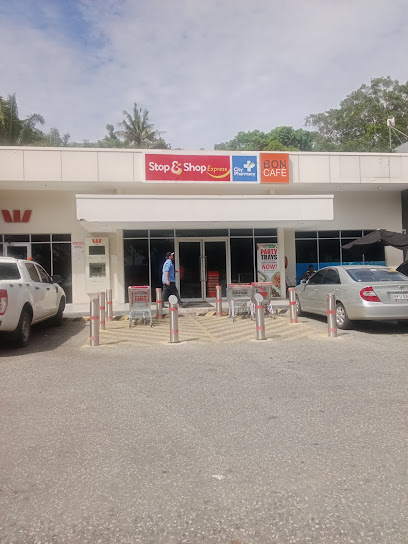
Yisu Trading
Discover a diverse range of products at Yisu Trading, your go-to department store in Port Moresby for clothing, groceries, and local treasures.
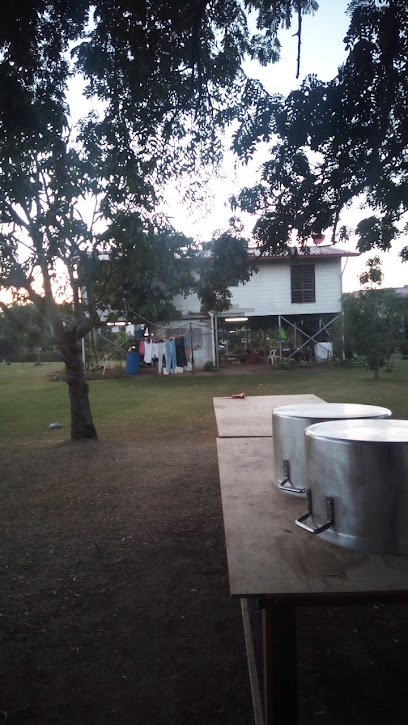
North West Clothing
Explore North West Clothing in Port Moresby for unique second-hand fashion at great prices, embracing sustainability while shopping.
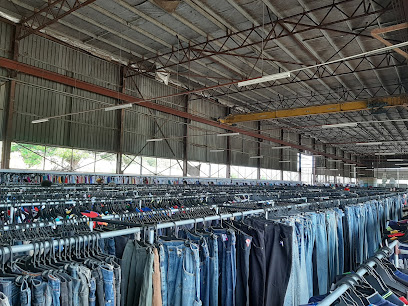
MKS BOUTIQUE
Explore MKS Boutique in Port Moresby for unique fashion accessories that reflect local culture and contemporary trends.

Morris store
Explore local flavors and essentials at Morris Store, your go-to grocery destination in Port Moresby, Papua New Guinea.
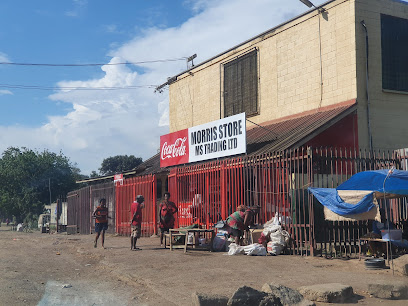
Maku Gifts Port Moresby
Explore Maku Gifts in Port Moresby for authentic Papua New Guinea crafts and souvenirs that capture the essence of local culture.
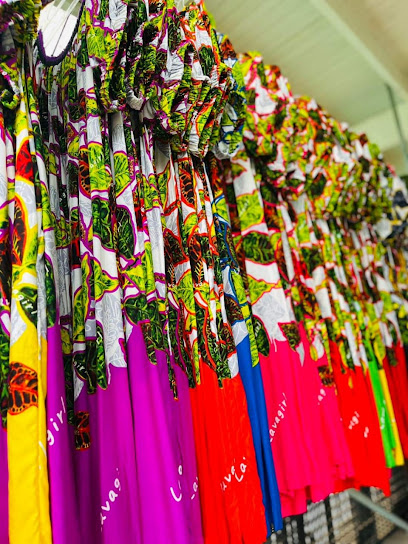
C's Creative Collections
Explore C's Creative Collections in Port Moresby for authentic Papua New Guinea crafts and fashion accessories that celebrate local artistry.
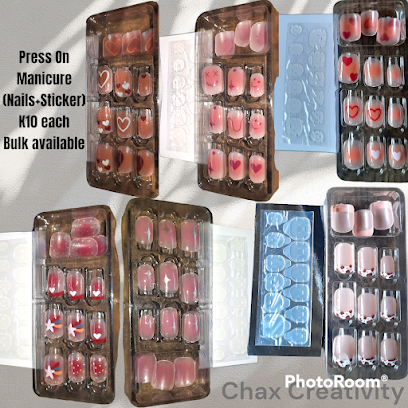
Kabayan Store
Discover Kabayan Store in Port Moresby for authentic Filipino snacks and products, the perfect convenience stop for curious travelers.
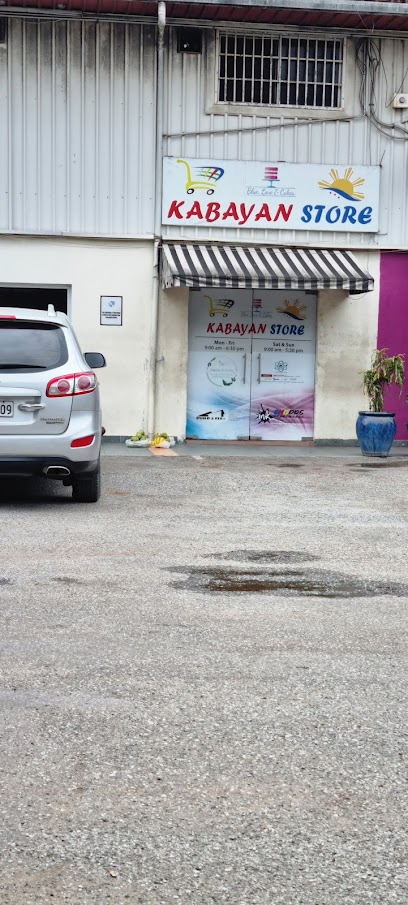
Popondetta Craft Market
Discover unique handmade crafts and immerse yourself in the vibrant culture at Popondetta Craft Market in Papua New Guinea.

家外小店
Discover the local charm at 家外小店, a convenience store in Port Moresby offering essential goods and a taste of Papua New Guinea's vibrant culture.

Kokoda Tailoring
Explore Kokoda Tailoring in Port Moresby for authentic, locally crafted clothing that embodies the vibrant culture of Papua New Guinea.

Essential bars & hidden hideouts
Jackson's Bar Restaurant & Gaming
Discover the vibrant atmosphere of Jackson's Bar Restaurant & Gaming, where delicious cuisine meets exciting gaming in Port Moresby.
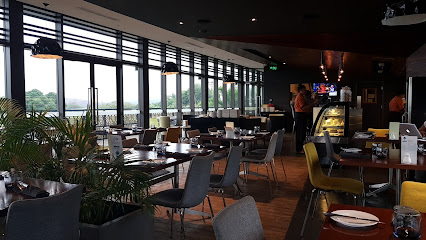
Ozzie’s Bar
Experience the vibrant atmosphere of Ozzie’s Bar at Ela Beach, offering a diverse drink selection and stunning coastal views in Port Moresby.
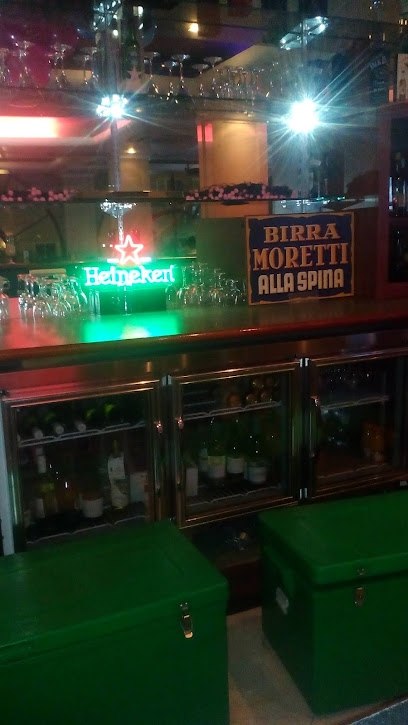
Red Rock Bar
Discover the vibrant flavors and atmosphere of Red Rock Bar, a premier grill destination in Port Moresby, perfect for food lovers and social butterflies alike.
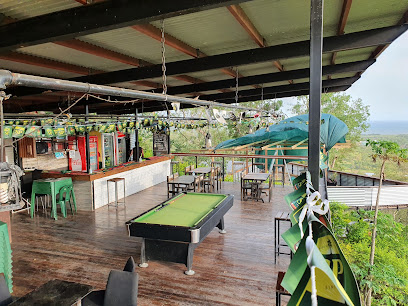
KUNDU CLUB
Discover the lively Kundu Club in Port Moresby, where local drinks and entertainment create an unforgettable nightlife experience.
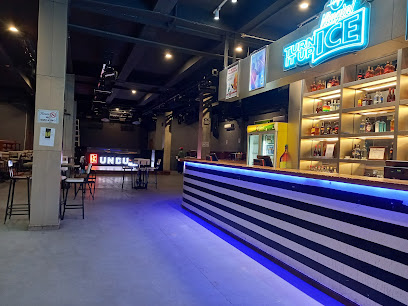
Akura Dining & Lounge Bar
Discover the flavors of Papua New Guinea at Akura Dining & Lounge Bar, where every bite tells a story amidst stunning views.
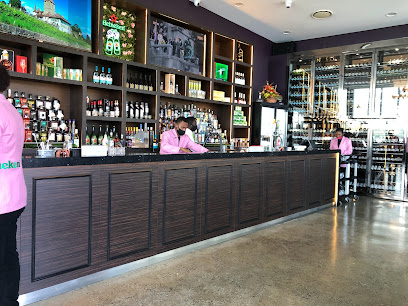
Gecko Bar, Holiday Inn
Discover the vibrant ambiance of Gecko Bar at Holiday Inn, where relaxation meets friendly service in the heart of Port Moresby.
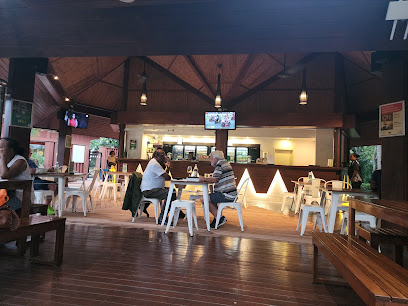
AKAKA - Bar & Grill
Discover the vibrant ambiance and delicious cuisine at AKAKA - Bar & Grill in the heart of National Capital District, perfect for every traveler.
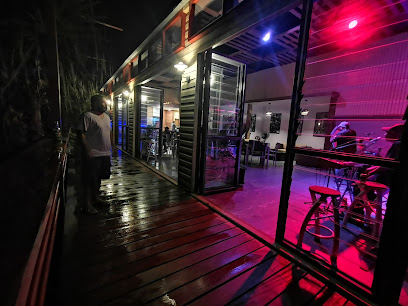
Group Therapy Bar
Experience the vibrant nightlife and refreshing drinks at Group Therapy Bar, nestled in Konebada Petroleum Park, Port Moresby.
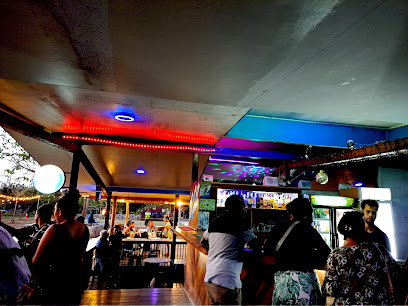
Beachside Bar
Experience the perfect blend of relaxation and vibrant nightlife at the Beachside Bar, your tropical escape in Port Moresby.
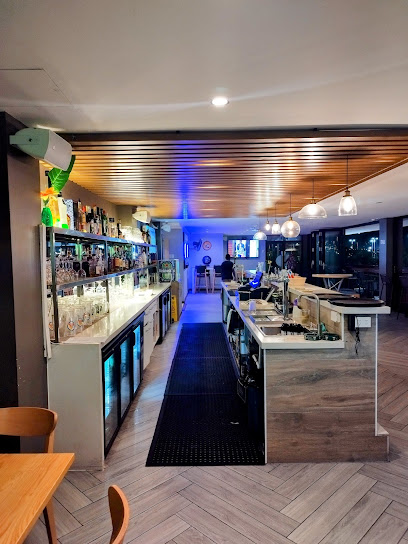
Chief's Bar
Experience the flavors of Port Moresby at Chief's Bar, where delicious grilled dishes meet stunning views of Taurama Beach.
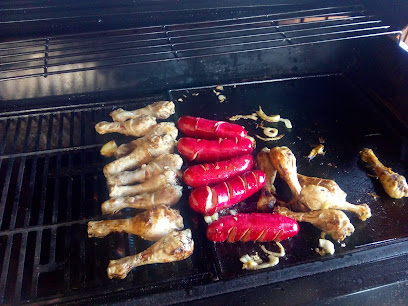
5 Star Bar & Pokies
Discover the lively atmosphere of 5 Star Bar & Pokies in Port Moresby, where great drinks and gaming await every visitor.

Grand Bar
Experience the vibrant nightlife of Port Moresby at Grand Bar, where local flavors meet a lively atmosphere for unforgettable evenings.
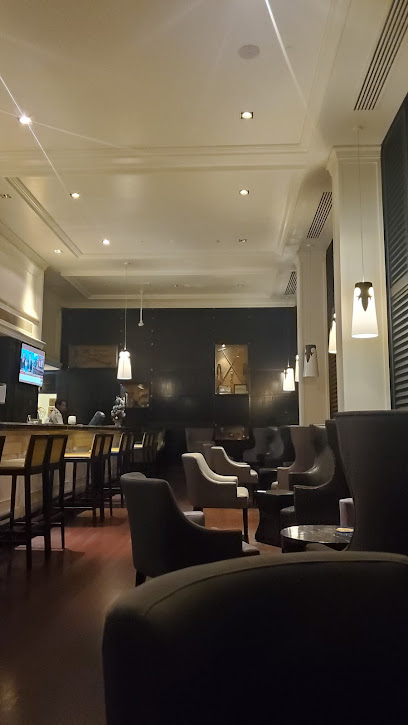
Summit Whisky Bar
Summit Whisky Bar in Port Moresby offers an exceptional selection of whiskies and a vibrant atmosphere perfect for relaxation and socializing.
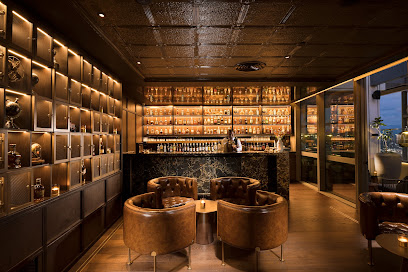
6:30 Green Haus Liquor
Discover the lively spirit of Port Moresby at 6:30 Green Haus Liquor, where drinks flow and good times abound.
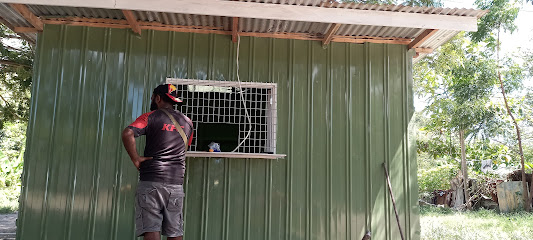
Local Phrases about Kokoda Track
-
- HelloGutpela dei
[goot-peh-lah deh] - GoodbyeGudbai
[good-bye] - YesYes
[yes] - NoNogat
[noh-gaht] - Please/You're welcomePlis
[plees] - Thank youTenkyu
[ten-kyoo] - Excuse me/SorrySori
[soh-ree] - How are you?Yu orait?
[yoo oh-ryeht] - Fine. And you?Mi orait. Na yu?
[mee oh-ryeht. nah yoo] - Do you speak English?Yu save toktok long Inglish?
[yoo sah-veh tohk-tohk lawng ing-gleesh] - I don't understandMi no save long tok
[mee noh sah-veh lawng tohk]
- HelloGutpela dei
-
- I'd like to see the menu, pleaseMi laik lukim menu, plis
[mee like look-eem meh-noo, plees] - I don't eat meatMi no kaik abus
[mee noh kaik ah-boos] - Cheers!Cheers!
[cheers] - I would like to pay, pleaseMi laik baim, plis
[mee like bah-eem, plees]
- I'd like to see the menu, pleaseMi laik lukim menu, plis
-
- Help!Help!
[help] - Go away!Go lusim!
[go loo-seem] - Call the Police!Kolim Polis!
[koh-leem poh-lees] - Call a doctor!Kolim dokta!
[koh-leem dohk-tah] - I'm lostMi les
[mee lehs] - I'm illMi sik
[mee seek]
- Help!Help!
-
- I'd like to buy...Mi laik baim...
[mee like bah-eem...] - I'm just lookingMi tasol lukim
[mee tah-sol loo-keem] - How much is it?Em i stap long hamas?
[ehm ee stahp lawng hah-mahs] - That's too expensiveEm i skelim tumas
[ehm ee skeh-leem too-mahs] - Can you lower the price?Yu ken lukaem prais?
[yoo kehn loo-kah-em prah-eess]
- I'd like to buy...Mi laik baim...
-
- What time is it?Em i taim nau?
[ehm ee tah-eem now] - It's one o'clockEm i wan taim
[ehm ee wahn tah-eem] - Half past (10)Haus past (10)
[hows past (10)] - MorningMornin
[mawr-neen] - AfternoonApinun
[ah-pee-noon] - EveningEvenin
[eh-veh-neen] - YesterdayStapdei
[stahp-deh] - TodayTudei
[too-deh] - TomorrowTomoro
[toh-moh-roh] - 1Wan
[wahn] - 2Tu
[too] - 3Tri
[tree] - 4Fo
[foh] - 5Faiv
[fah-eve] - 6Sikis
[see-kees] - 7Seven
[seh-vehn] - 8Eit
[ayt] - 9Nain
[nayn] - 10Ten
[tehn]
- What time is it?Em i taim nau?
-
- Where's a/the...?Em i stap long...
[ehm ee stahp lawng...] - What's the address?Em i adres?
[ehm ee ah-drehs] - Can you show me (on the map)?Yu ken soim mi (long map)?
[yoo kehn soy-mee mee (lawng map)] - When's the next (bus)?Taim bai naispela (bus) i kam?
[tah-eem by nai-speh-lah (boos) ee kahm] - A ticket (to ....)Wan tiket (long ....)
[wahn tee-keht (lawng ....)]
- Where's a/the...?Em i stap long...
History of Kokoda Track
-
Before European contact, the region surrounding the Kokoda Track was home to various indigenous tribes. These tribes had their own unique cultures, languages, and traditions. The dense jungle terrain made it difficult for different groups to interact, leading to a rich tapestry of distinct communities.
-
In the late 19th and early 20th centuries, European explorers and missionaries began to make their way into the interior of Papua New Guinea. They established missions and outposts, introducing Western religion and education to the local population. The Kokoda Track itself was used as a path for these early explorers and missionaries.
-
One of the most significant events in the history of the Kokoda Track was the World War II campaign fought between July and November 1942. The Japanese forces aimed to capture Port Moresby via the Kokoda Track, but were met with fierce resistance from Australian troops. This grueling conflict was characterized by brutal jungle warfare and extreme conditions. The successful defense of the track by the Australians is considered a pivotal moment in the Pacific War.
-
During the Battle of Kokoda, local Papua New Guinean villagers, affectionately known as the 'Fuzzy Wuzzy Angels,' played a crucial role in assisting the Australian soldiers. They carried supplies, evacuated the wounded, and provided invaluable knowledge of the terrain. Their contribution was essential to the Australian war effort and is remembered with great respect and gratitude.
-
After World War II, the Kokoda Track became a symbol of sacrifice and endurance. Memorials and plaques were erected along the track to commemorate those who fought and died there. Each year, many Australians and international visitors trek the Kokoda Track to honor the memory of the soldiers and to experience the historical significance of the location.
-
Today, the Kokoda Track is not only a historical site but also a cultural one. It offers a unique opportunity to learn about the indigenous cultures of Papua New Guinea. Visitors can engage with local villagers, participate in traditional ceremonies, and gain an appreciation for the way of life that has persisted for centuries. The track serves as a bridge between the past and the present, providing insight into both the historical events and the enduring cultural traditions of the region.
Kokoda Track Essentials
-
The Kokoda Track in Papua New Guinea is most commonly accessed via Port Moresby, the capital city. Jacksons International Airport in Port Moresby is the main entry point for international travelers. From Port Moresby, you can take a domestic flight to either Popondetta or Kokoda. Once in Kokoda, local guides and tour operators can help you start your trek.
-
Transportation options in Papua New Guinea are limited. Most travelers rely on domestic flights to reach the starting point of the Kokoda Track. Once at Kokoda, trekking is the primary mode of transportation. It is advisable to hire a local guide for navigation and safety. Porters are also available to help carry gear. In Port Moresby, you can use taxis and hotel shuttles for getting around. Public transport is generally not recommended due to safety concerns.
-
The official currency in Papua New Guinea is the Papua New Guinean Kina (PGK). Credit cards are accepted in major hotels and some restaurants in Port Moresby, but cash is essential for most transactions, especially in rural areas like Kokoda. ATMs are available in Port Moresby, but it is advisable to carry sufficient cash when heading out to the track. Currency exchange services are also available at the airport and in major hotels.
-
While the Kokoda Track is generally safe, travelers should exercise caution. Port Moresby has areas with high crime rates, particularly targeting tourists, so it is important to stay in well-secured accommodations and avoid walking alone at night. Always keep your belongings secure and be aware of your surroundings. On the track, follow your guide's instructions carefully and avoid straying from the group.
-
In case of emergency, dial 111 for immediate assistance in Papua New Guinea. Medical facilities in Port Moresby are available, but services may be limited in rural areas. It is crucial to have comprehensive travel insurance that includes medical evacuation. On the Kokoda Track, guides are trained in basic first aid and can assist until professional help arrives. Always carry a basic first aid kit and know the locations of the nearest medical posts along the track.
-
Fashion: Do wear lightweight, moisture-wicking clothing suitable for tropical climates. Sturdy hiking boots are a must. Avoid wearing flashy jewelry. Religion: Do respect local customs and traditions. Always ask for permission before taking photos of people or their property. Public Transport: Do use registered taxis or hotel shuttles for travel in Port Moresby. Avoid using public buses. Greetings: Do greet people with a friendly 'hello' or 'good morning.' A handshake is common. Eating & Drinking: Do try local foods but ensure they are well-cooked. Drink only bottled or purified water to avoid waterborne diseases.
-
To experience the Kokoda Track like a local, engage with your guides and porters who can share insights about the area's history and culture. Visit local villages along the track to learn about the traditional way of life. Participate in local ceremonies and try local foods offered by villagers. Always be respectful and show genuine interest in their stories and customs.
Nearby Cities to Kokoda Track
-
Things To Do in Lae
-
Things To Do in Alotau
-
Things To Do in Goroka
-
Things To Do in Kimbe
-
Things To Do in Madang
-
Things To Do in Buka
-
Things To Do in Mount Hagen
-
Things To Do in Kokopo
-
Things To Do in Rabaul
-
Things To Do in Wewak
-
Things To Do in Kavieng
-
Things To Do in Port Douglas
-
Things To Do in Arawa
-
Things To Do in Cairns
-
Things To Do in Taro Island








